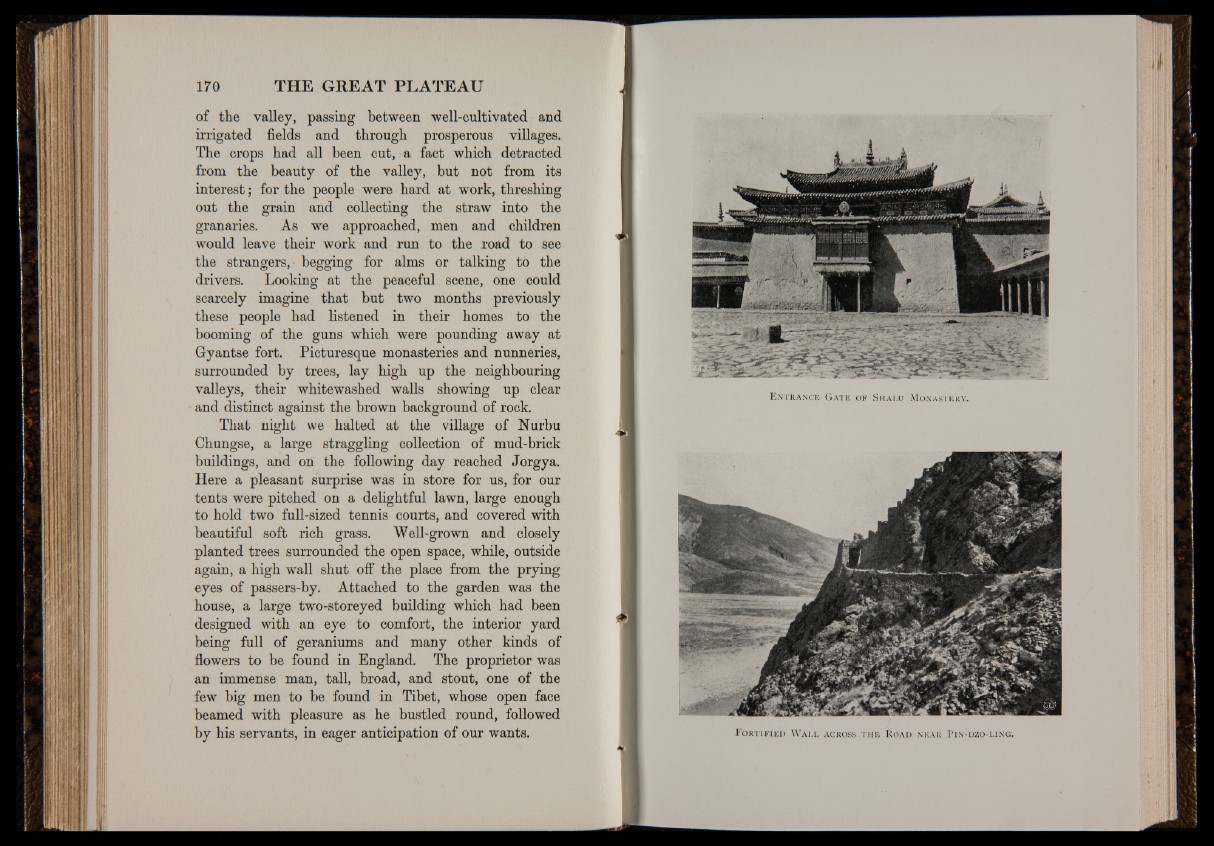
of the valley, passing between well-cultivated and
irrigated fields and through prosperous villages.
The crops had all been cut, a fact which detracted
from the beauty of the valley, but not from its
interest; for the people were hard at work, threshing
out the grain and collecting the straw into the
granaries. As we approached, men and children
would leave their work and run to the road to see
the strangers, - begging for alms or talking to the
drivers. Looking at the peaceful scene, one could
scarcely imagine that but two months previously
these people had listened in their homes to the
booming of the guns which were pounding away at
Gyantse fort. Picturesque monasteries and nunneries,
surrounded by trees, lay high up the neighbouring
valleys, their whitewashed walls showing up clear
and distinct against the brown background of rock.
That night we halted at the village of Nurbu
Chungse, a large straggling collection of mud-brick
buildings, and on the following day reached Jorgya.
Here a pleasant surprise was in store for us, for our
tents were pitched on a delightful lawn, large enough
to hold two full-sized tennis courts, and covered with
beautiful soft rich grass. Well-grown and closely
planted trees surrounded the open space, while, outside
again, a high wall shut off the place from the prying
eyes of passers-by. Attached to the garden was the
house, a large two-storeyed building which had been
designed with an eye to comfort, the interior yard
being full of geraniums and many other kinds of
flowers to be found in England. The proprietor was
an immense man, tall, broad, and stout, one of the
few big men to be found in Tibet, whose open face
beamed with pleasure as he bustled round, followed
by his servants, in eager anticipation of our wants. F o r t i f i e d W a i .l a c ro s s t h e R o a d n e a r P in -d z o -l in g .